You might have probably heard or thought of a sea creature attacking kayaks. But do sharks attack Kayaks? Sharks have been a little bit badly reputed to attack kayakers and you may be in fear as you ponder the possibility as well as the probability of being attacked.
However, this article will shed light as to what is the truth about these claims and whether all sharks are capable of launching an attack.
You will know why your kayak may attract a shark, what defense mechanisms to use as well as how to avoid an attack. You will also know what to do if you get knocked out of your kayak.
Most importantly, you will finally know if it’s worth being afraid of these sea creatures when you go kayaking. So let’s get started!
Table of Contents
Can a Shark Knock You Off a Kayak?

Yes, a shark is capable of knocking a person off a kayak or boat. However, shark attacks are not widespread.
This skilled predator has its own way of hunting, which is to swim beneath its prey. They launch attacks in a powerful vertical way by means of an upward movement which they make at high speed and force.
Although most shark attacks will pass as encounters rather than attacks as sharks are not really interested in eating humans, these creatures can be very curious.
Out of their curiosity which can even be increased by your kayak paddle splashing through water, they can get provoked or feel threatened which will cause them to investigate.
Their method of investigation is to bump your kayak and in the process, your kayak may capsize and if you’re not well strapped into your boat, you can be knocked off into the water.
However, there is a tendency that this powerful creature will leave the kayaker alone with barely any injuries.
What to Do If You Got Knocked Out of Your Kayak?
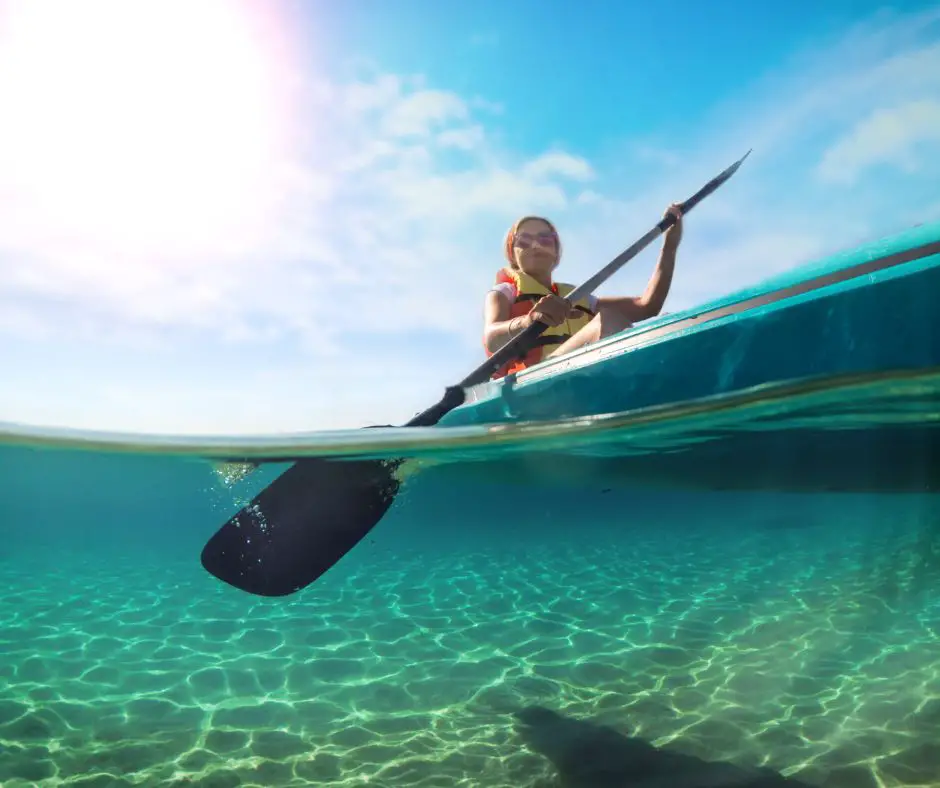
Now you know that there is the possibility of you getting knocked out of your kayak. So this begs the question of what you should do just in case you get knocked off.
Attempting to quickly get back into your kayak is the best option for you in a knockoff scenario. However, it might be difficult for you to re-enter your kayak, especially in deep water. So, it is a good thing to start practicing prior to any emergency attack in order to perfect your re-entry skill.
After you must have re-entered your kayak, try not to panic as you paddle your way towards the shore. Ensure to monitor the shark to be sure of its movement.
While you check to see whether it is getting closer or following you, try a backward paddling style as this will enable you to monitor the shark better.
If you are unable to reach your kayak as it drifts away, just try to swim to the shore without panicking. However, swimming to the shore should be your last resort because it’s safer to be in a kayak than in the water.
If you are able to locate other kayakers on the water, attempt to get on their kayak as soon as possible. It’s really not a good option to remain in the water.
Truth About Shark Attacks
Indeed, sharks can attack kayaks but they are not as dangerous as they have been portrayed by the media or spoken about by people. Although these creatures do not have the tendency of attacking a kayak for no reason, there have been occasions of their attacks in the past.
Between the years 1779 and 2020, only 59 of the 6,522 shark events revealed a kayak, thus accounting for 10 percent of the total. 2019 had a record of 64 unprovoked shark attacks all over the world with only just two marked as deadly.
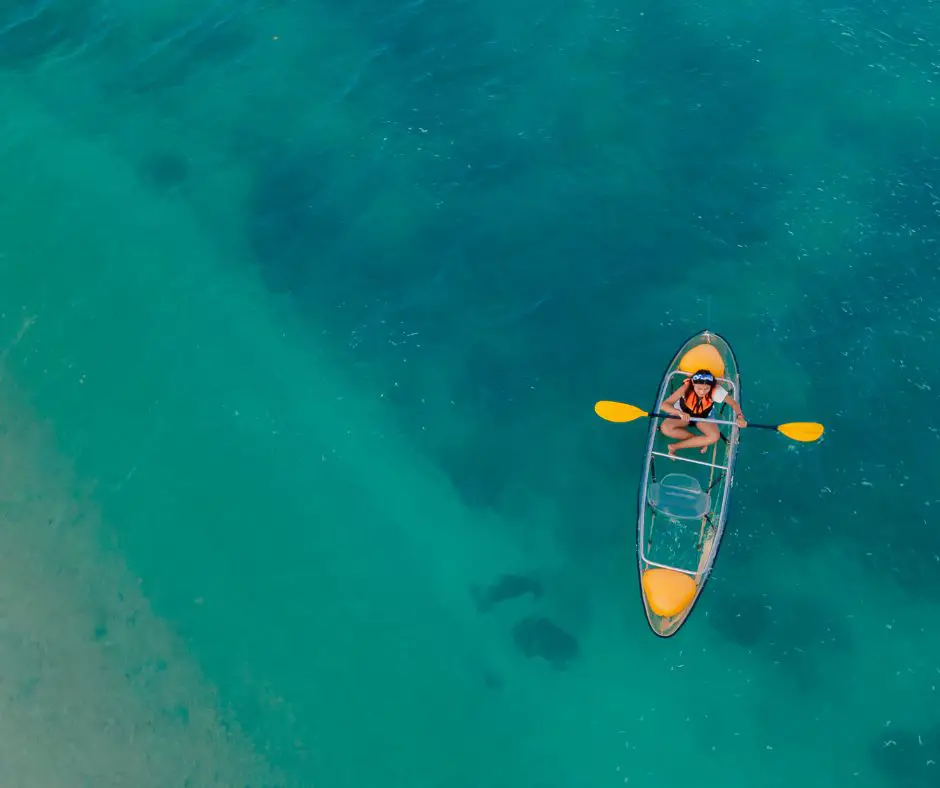
As of the year 2020, shark attacks involving the use of kayaks were about 9%. And in all, the percentage of kayakers whose fatalities can be attributed to shark attacks is 0.35 percent.
All of these statistics point to the fact that the mortality rate for victims is low. These statistics also buttress the fact that sharks launching attacks on humans is just a case of a curious and confused predator.
Do Sharks Attack Kayaks?
Yes, sharks do attack kayaks and in the event where sharks attack kayaks, it is because they have mistaken it for prey. These curious creatures can mistake a kayak on the surface for a sea lion or seal and while they try to investigate, your kayak gets a bump.
And while there are various species of shark, the great white sharks and the bull sharks are the only two main types that will attack humans.
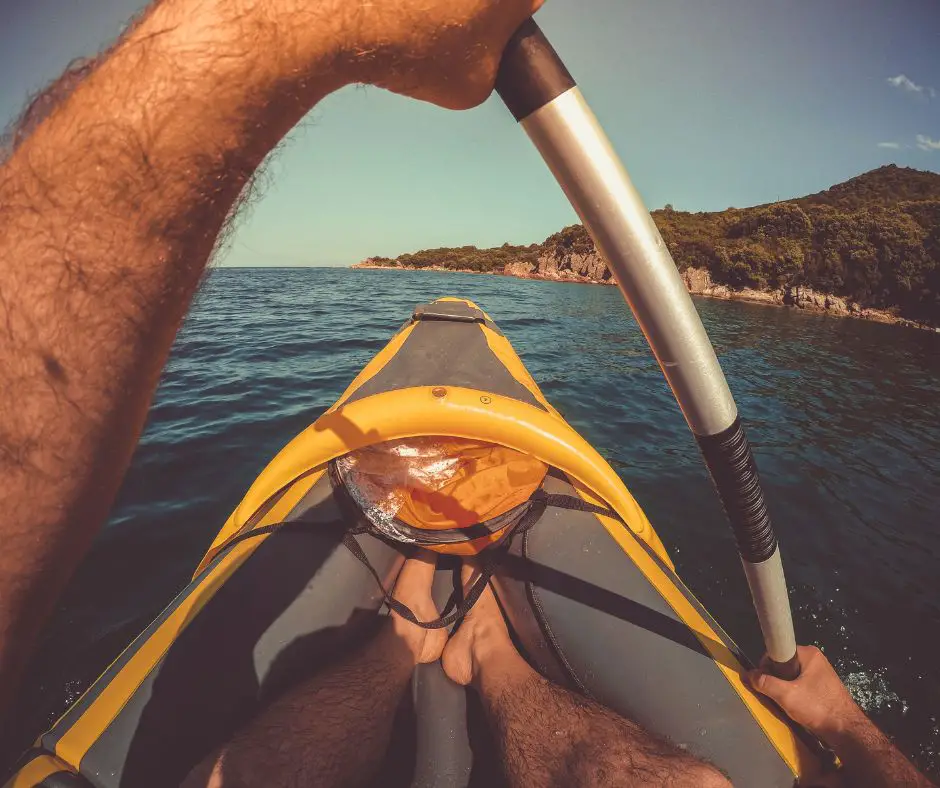
What Are Kayaks Attracting Sharks?
Although, people always consider yellow as a color that catches the attention of sharks proof has it that sharks are colorblind. So, the idea that sharks are only attracted to certain colors is just speculation.
For sharks, they place priority on movement rather than on colors. Yes, they may be colorblind but they are not blind. So, they can see your kayak and as you paddle, confusion sets in for them which may provoke them or stir up their curiosity.
Sharks get provoked by trailblazing kayaks and this provocation can be caused by an individual or a group of kayakers.
So a shark will most likely see your kayak as a rival or threat and launch an attack to protect its territory.
Although sharks are capable of smelling one drop of blood diluted in 10 million drops of water, humans are never sharks’ favorite meal. But in a bid to check if you are one of their prey, it will try approaching your kayak to launch an attack.
How to Defend Yourself Against a Shark Attack?
Getting in an encounter with a shark is really nothing to worry about when you can defend yourself. So here are a few suggestions on how to defend yourself, in case you find yourself in a shark attack scenario:
- Delete fear
Erase your fears and try to stay calm. You should not panic as any show of fear can cause the shark to investigate you further. Avoid splashing around too to reduce the risk of a shark bite.
- Don’t lose eye contact with the predator
Sharks as predators have an ambush style of attacking their prey and as such you must keep an eye on its movement. You must not be caught unaware as looking away for a moment can give the shark a chance to attack.
- Paddle to shore
Don’t paddle out of panic, this can further interest the shark. Just paddle slowly while you keep an eye on the shark’s movement.
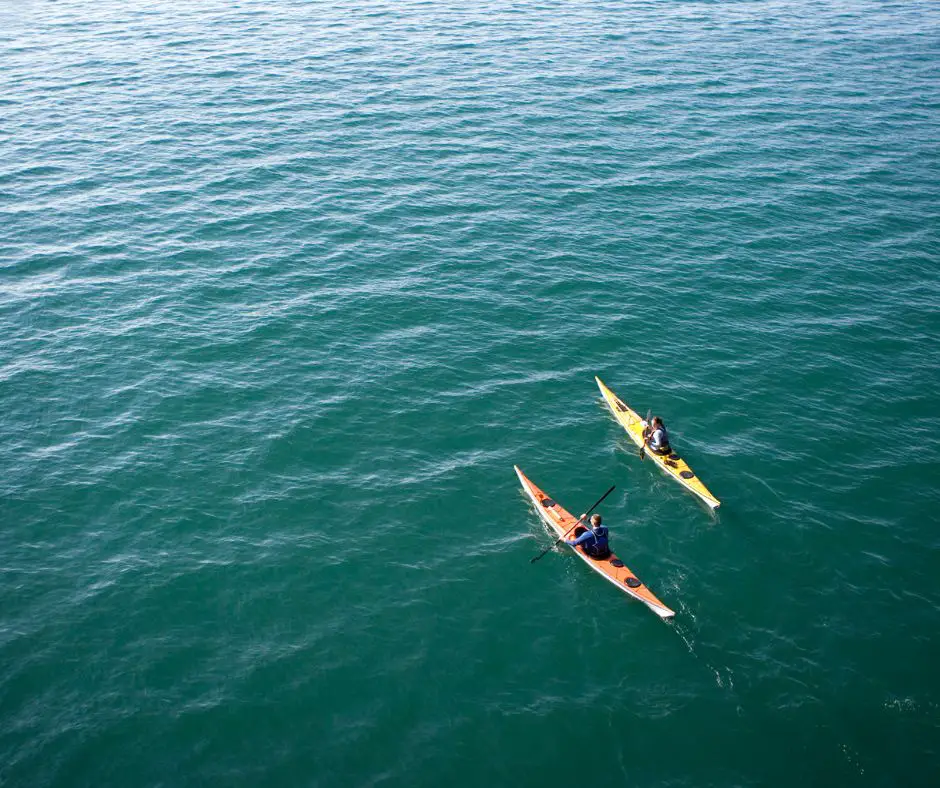
- Pay the shark in its own coin
A playing dead technique would not apply to an aggressive shark. So, you may have to launch an attack too. However, it must be a strategic one. With a show of strength, hit the shark’s face and gills.
This can help you buy more time for yourself temporarily as it causes the aggressive creature to retreat. Do not stop hitting the shark’s eyes, gills and nose as this act is capable of stunning the shark long enough for you to reach safety.
While hitting, keep your focus on these strategic places so that you don’t miss the target and further provoke the shark.
How to Avoid a Shark Encounters
Now you can tell that when a shark supposedly launches an attack, it’s more of a mistaken identity issue. Sharks encounter can be avoided while kayaking and here is how.
Stay away from domains where sharks reside or waters where large groups of fish, seals, or sea lions are spread so that you won’t be mistaken for prey.
And on days when you choose to kayak close to the shore, ensure to stay clear of river mouths. You should also keep away from river mouths that are cloudy as well as suspect waters.
Since dusk and dawn are times when sharks are actively on the lookout for prey, do not sea kayak at these prime times. Watch out for blood in the water, you must avoid it as well as slicks from fishing vessels.
Avoid inflatables especially at sea as they can be easily deflated by an aggressive shark and do not invite sharks with frantic paddling and splashing, rather paddle calmly without panic.
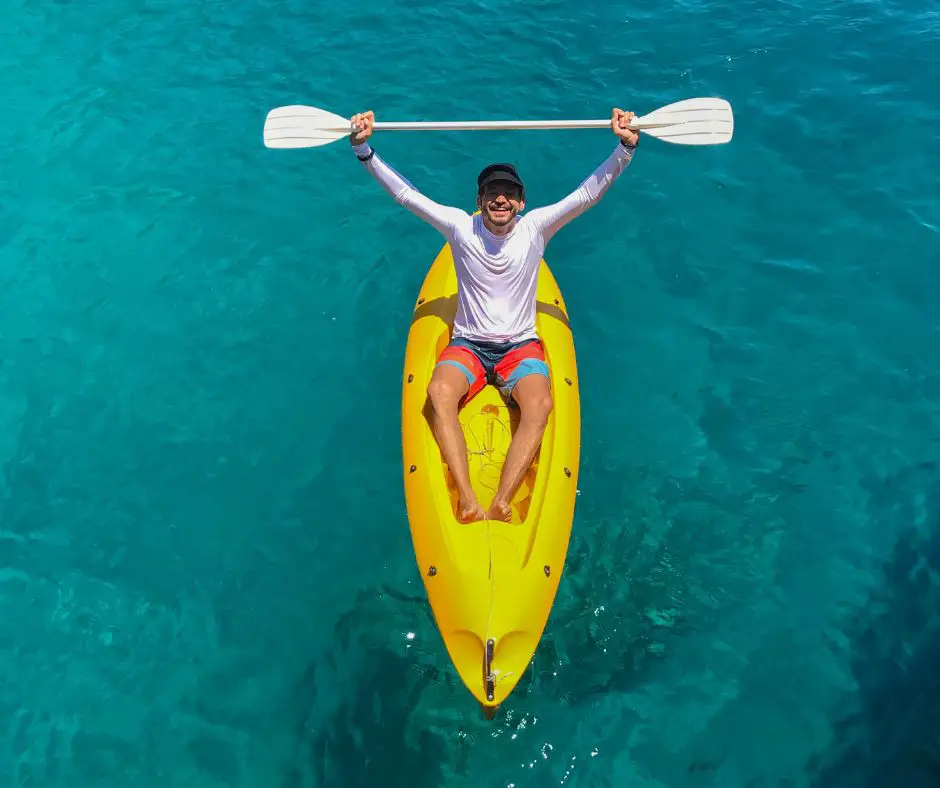
Ensure to be with your knife while kayaking in case of entanglement and always wear your helmet for all kayaking activities. This helmet will absorb the impact of a crash that may occur if your kayak capsizes.
Shark repelling products are available in different varieties and while there is no proof of them being 100% effective, they can give you a bit of assurance as regards safety. They exist as electric, magnetic, acoustic, and spray shark repellents.
Electric shark repellents offer a sensory overload to any shark that gets into its radius, thus changing the direction of its movement.
Magnetic shark repellents can be worn as wrist or ankle bands. They interfere with the sensitivity of sharks by means of a magnetic field.
SHARKBANZ 2 Magnetic Shark Repellent Band for Swimming
The acoustic type repels sharks by means of Ocra calls and different sounds to scare off sharks while spray shark repellents utilize the essence of dead sharks to repel the predator.
FAQs
Is it safe to kayak in the ocean?
Safety while kayaking in the ocean is determined by how ready or how prepared you are to allay the risk that you might encounter.
Do sharks knock over kayaks?
Yes, sharks are capable of knocking over kayaks due to their curious nature. In the process of wanting to check if your kayak is really prey, they can knock it off.
How do I keep sharks out of my kayak?
The safest way is to not sail in their territory and if you must, shark repellents can be utilized to repel these predators.
Do sea lions attack kayakers?
Sea lions do not have the tendency to attack kayakers but they can be curious and know what is wrong.
How often are kayakers attacked by sharks?
Although kayakers can encounter sharks, cases of sharks attacking kayakers are rare as opposed to some rumors.
Conclusion
Clearly, sharks do attack kayaks out of curiosity and confusion. Now, this is not a license to fear while kayaking as scenarios of attacks are not as rampant as people speculate.
Rather, this is a call for preparedness towards any shark encounter that may occur while kayaking on the water. You can utilize all the information in this article and ensure your safety, while you kayak without fear.


